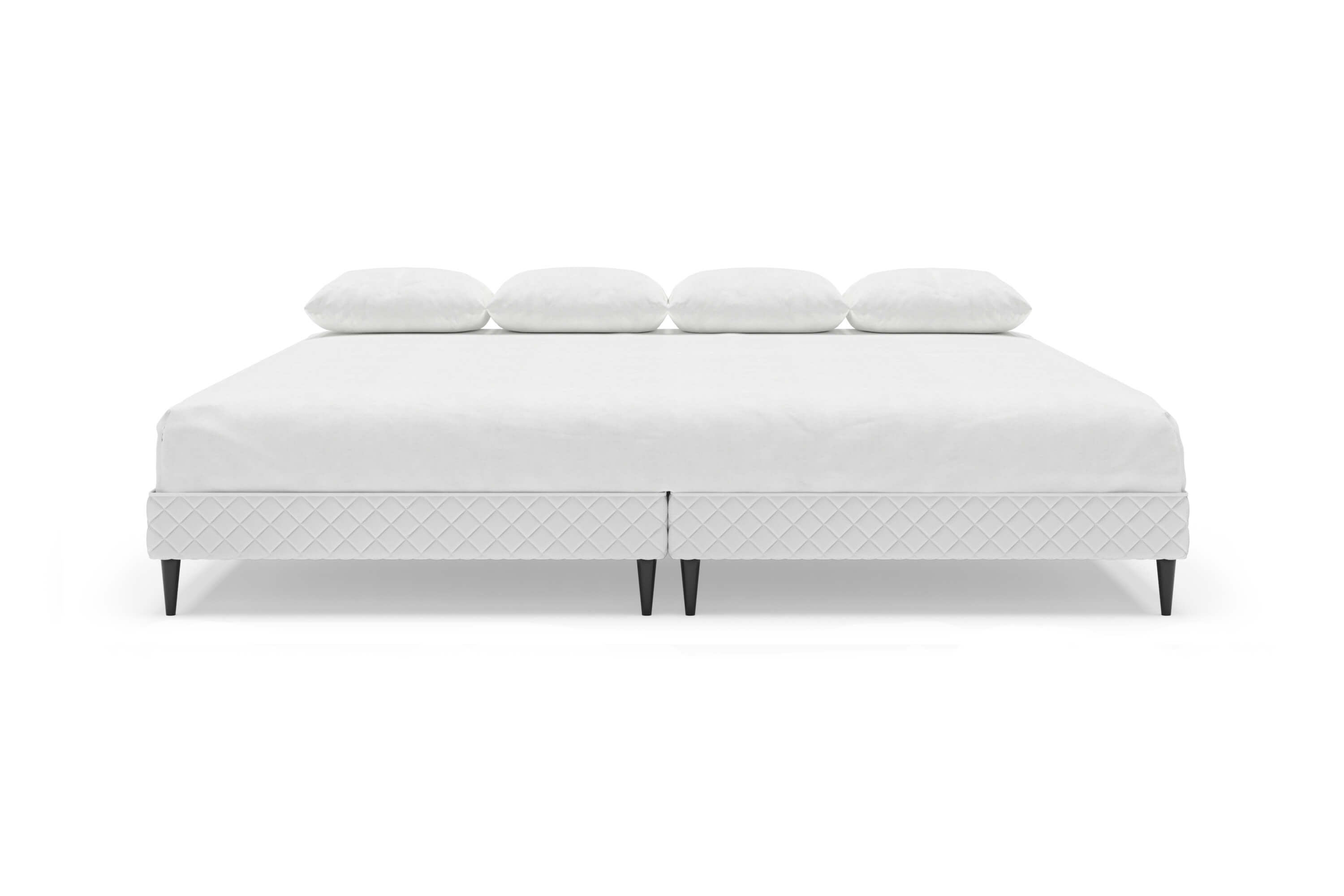Does Daily Sunlight Exposure Improve Sleep?
Our brains use sunlight as an important environmental cue to control what’s going on inside our bodies. The presence of sunlight or lack of it triggers the production of certain hormones, which further regulate processes in our body.
For instance, lack of light in the evening stimulates the production of melatonin. This molecule is also known as the “sleep hormone” because it is crucial for feeling sleepy in the evening and staying asleep throughout the night.
So, what’s the link between sunlight, sleep, and melatonin? And can more sunlight exposure during the day lead to better sleep at night?

Melatonin and Sleep
Melatonin is a central part of our sleep-wake cycle, as its production signals that it is time to rest. The pineal gland releases this hormone into the bloodstream in the evening and during the night. The trigger is evening darkness or lack of sunlight.
Melatonin promotes sleepiness, and it helps us transition from wakefulness to sleep. It is also vital for maintaining sleep throughout the night.
Although our bodies naturally produce melatonin, many people use it as a supplement to aid their sleep problems.
The Benefits of Sunlight Exposure
Although most past suggestions by health experts focused on the harmful effects of extended sun exposure, we now know that moderate sunlight has many benefits. Sunlight influences many parts of our well-being, including the regulation of body temperature, metabolism, mental health, and sleep.
Here is how sunshine can benefit your health.
It Is Vital for Vitamin D Production
When the ultraviolet B (UV B) rays from sunlight hit our skin, it onsets processes that lead to vitamin D production. Vitamin D helps our bodies absorb calcium from foods, which is vital for healthy bones and teeth. It is also crucial for muscle health and proper immune system response.
Getting enough sun exposure will help vitamin D production, which reduces inflammation, strengthens your immune system, improves bone health, protects against heart disease, and reduces chances of cancer and diabetes. Vitamin D deficiency can also lead to various bone conditions, including osteoporosis.
It Reduces Stress and Promotes Emotional Well-Being
Sunlight exposure triggers the release of serotonin. This hormone is linked with better mood, focus, calmness, and overall well-being. When you don’t spend enough time in the sun, your serotonin levels can dip, affecting your mood. This can even cause depression, and there is a common condition called major depressive disorder with a seasonal pattern that affects people in the fall and winter when they don’t get enough sunlight.
So, by spending enough time in the sun, you should get a little serotonin boost to improve your mental health and emotional well-being.
It Boosts Skin and Eye Health
Too much sun is bad for your skin as it increases the chances of skin cancer. According to the World Health Organization (WHO), excessive sun exposure can lead to non-melanoma and melanoma skin cancers. It also accelerates skin aging and leads to the formation of wrinkles.
However, moderate sun exposure can improve certain skin conditions like psoriasis, acne, or eczema. The trick is to limit your sun exposure during the hottest parts of the day, wear sunscreen, and hydrate.
Too much direct sunlight can also hurt your eyes. But moderate amounts boost eye health and may promote better eyesight in later years.
It Leads to Better Sleep
We have an internal clock that helps us regulate our daily activity. Our brains constantly sync this internal clock with the environment, all thanks to sunlight. When your eyes perceive bright light, it signals to your brain that it is time to be active. The opposite means it is time to rest, and that’s when your brain starts producing melatonin.
Our bodies work on a unique 24-hour schedule called the circadian rhythm. It affects our sleep-waking cycle, metabolism, hormone regulation, and many other functions.
You can help your brain differentiate between rest and active periods by taking a short walk in the morning. That way, you’ll get sunlight exposure and some activity. As a result, your brain knows it’s time to be active, and your metabolism and energy levels will increase. In addition, your brain should produce more melatonin in the evening, leading to better sleep.
How Much Sunlight Exposure Is Enough?
How much time you need to spend outside depends on many factors, including the season and your skin color. Scientists estimate that you only need 10 to 20 minutes in the sun during the summer and spring to get the necessary amount of vitamin D. That number goes up to two hours in the winter.
Also, people with lighter skin produce more vitamin D, while people with darker skin need more time to create the same amount of vitamin D because part of the sun’s radiation is absorbed by the pigment called melanin.
Remember to apply sunscreen and wear sunglasses if you stay outside for longer than the recommended amount. You can also take advantage of the early morning sun, as the radiation isn’t as intense, and research shows that morning walks have many benefits.
What to Do if You Are Having a Lazy Morning?
It’s Sunday; you feel particularly lazy and don’t want to get up for a morning walk. We understand. You can simply open your curtains and let the sunlight fill the room while you and your family enjoy a relaxing morning on one of our oversized premium mattresses. That way, you’ll still get some of the sunlight benefits while remaining in the comfort of your bed.









